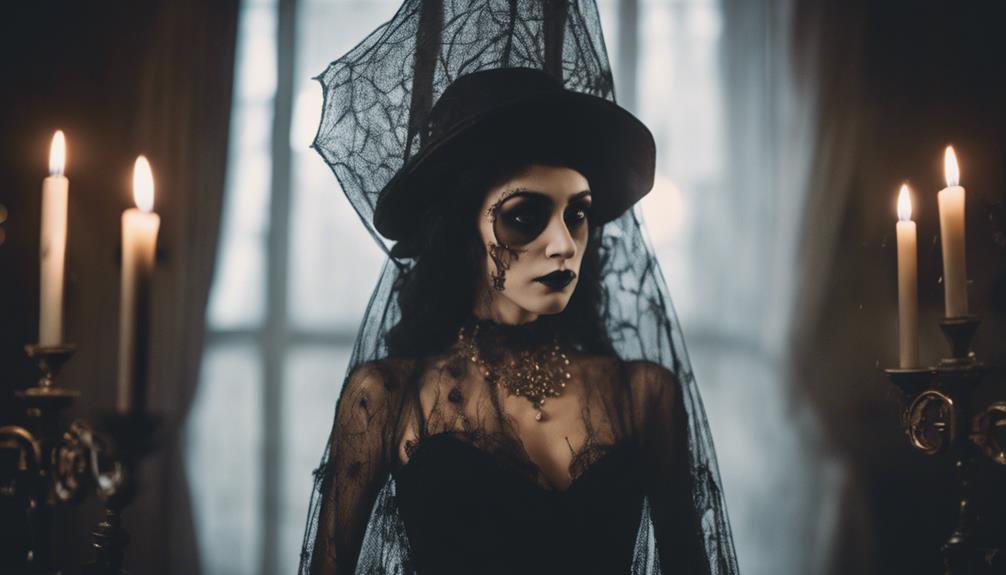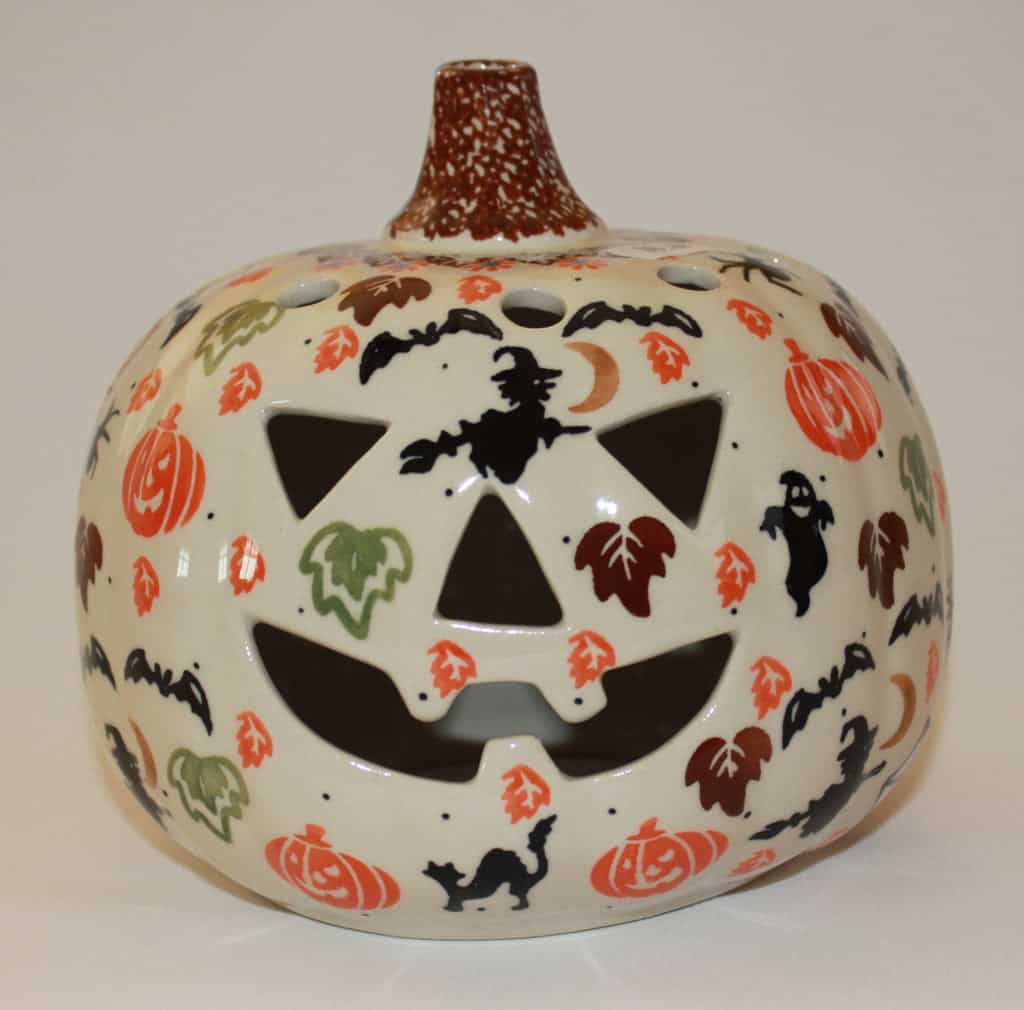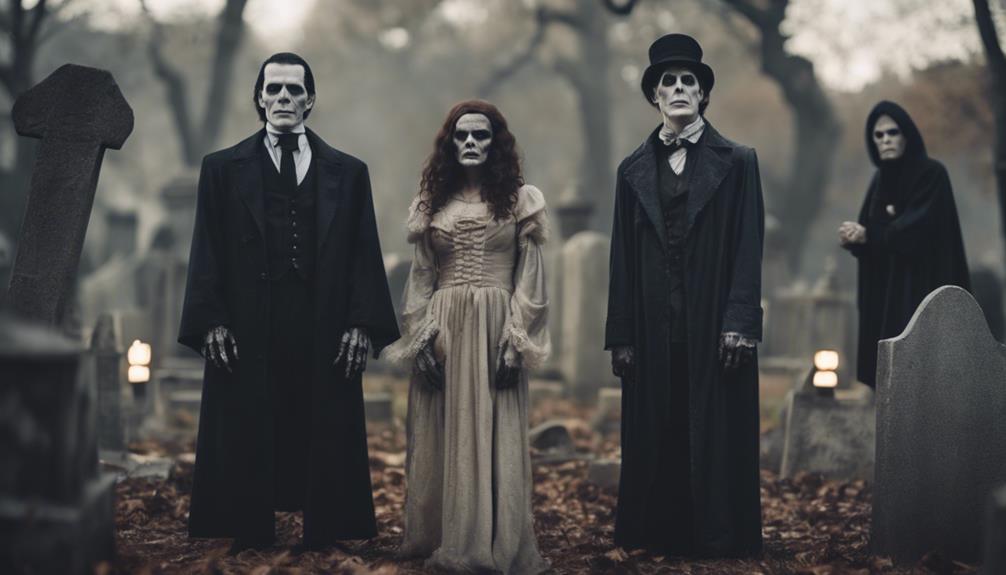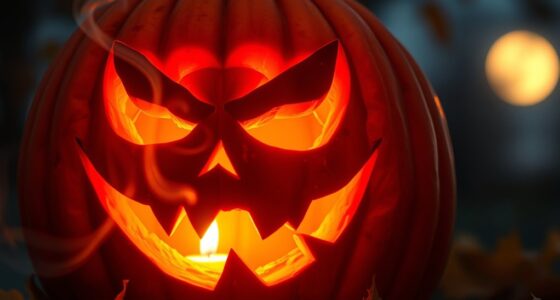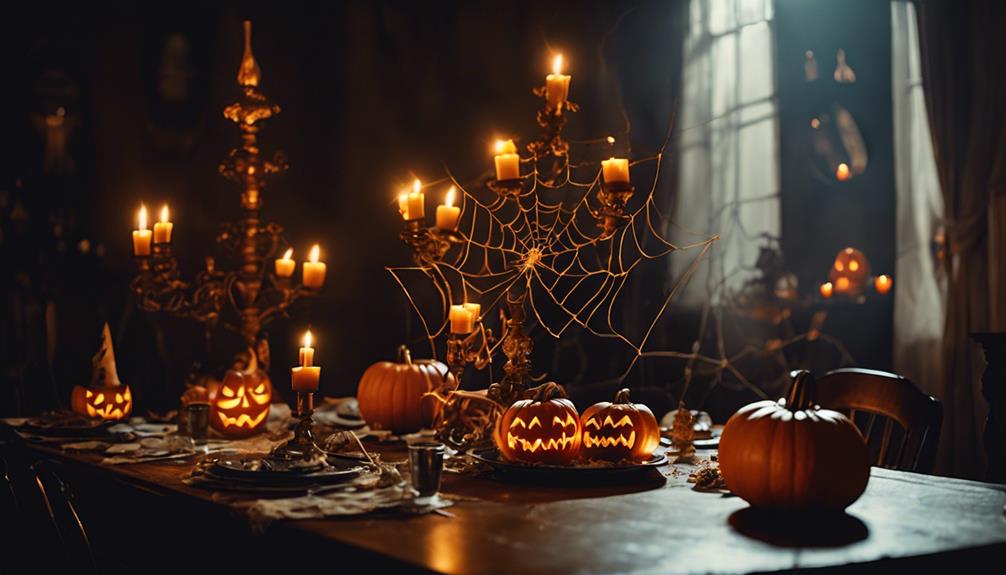Halloween's roots trace back to the Celtic festival Samhain, a time to mark the end of harvest and honor the deceased. Blurring the line between the living and the dead, ancient customs aimed to ward off evil spirits. Over time, Christian influences blended with pagan practices, shaping the Halloween as it exists today. While some debate its origins, Halloween has evolved into a holiday focusing on fun, community, and harmless traditions. Understand its history to appreciate the celebrations without misinterpretation. Learn more about the historical context and cultural significance to gain a deeper understanding of Halloween's essence.
Key Takeaways
- Halloween's historical roots in pagan practices may be misconstrued as evil.
- Modern Halloween focuses on fun, community, and harmless traditions.
- Understanding cultural evolution helps dispel misconceptions about Halloween.
- Participation in Halloween can align with personal values and beliefs.
- Differentiate between historical significance and modern celebrations to address concerns.
Historical Origins of Halloween
The historical origins of Halloween can be traced back to the Celtic festival Samhain, marking a significant shift in ancient beliefs and traditions. The ancient Celts celebrated Samhain as the end of the summer harvest and believed that on November 1, the boundary between the living and the dead blurred. During this time, they engaged in pagan practices to ward off evil spirits that they thought roamed the earth. To protect themselves, they'd wear costumes and light bonfires. These customs were deeply rooted in the Celtic culture and played an important role in shaping the early Halloween celebrations.
As the years passed, the Catholic Church incorporated elements of Samhain into All Saints Day, which eventually evolved into Halloween as it's celebrated today. The transformation from ancient Celtic rituals to modern Halloween traditions showcases the blend of different cultural influences over time. This evolution highlights how a festival once dedicated to warding off evil spirits has evolved into a beloved holiday filled with costumes, candy, and community festivities.
Religious Perspectives on Halloween

Given the varied interpretations of Halloween within religious circles, perspectives on the holiday can differ greatly based on individual beliefs and traditions. When it comes to religious perspectives on Halloween, Christians, in particular, often ponder the holiday's compatibility with their faith. Here are some key points to ponder:
- Christians' Views: Some Christians hold concerns about the origins of Halloween and its association with practices that contradict their beliefs.
- What the Bible Says: The Bible doesn't directly address Halloween, leading to diverse interpretations among Christians.
- Celebrating Halloween: The debate among Christians centers on whether participating in Halloween aligns with their core religious values.
- Is Halloween Inherently Evil?: Questions arise within religious communities about whether Halloween's themes of fear, witchcraft, and sorcery conflict with their teachings.
These factors contribute to the ongoing discussion within religious groups about the appropriateness of engaging in Halloween festivities.
As individuals navigate their faith alongside societal customs, understanding these differing perspectives can offer insights into the complex relationship between religion and Halloween.
Cultural Evolution of Halloween

With roots in ancient Celtic traditions, Halloween has undergone a significant cultural transformation over the centuries. Originally tied to the Celtic festival of Samhain, where people believed spirits roamed the earth, Halloween later intertwined with Christian practices like All Saints Day.
Today, Halloween is simply a cultural celebration marked by costumes, trick-or-treating, and parties. Christians celebrate the day differently, focusing more on saints and deceased loved ones. The holiday has evolved into a festive occasion, with costume parties and gatherings taking center stage.
Many cultures worldwide have similar celebrations around the same time, each with their own unique customs and practices. While Halloween in mainstream America emphasizes fun, costumes, and candy, its historical ties to death and the supernatural have become less prominent. The evolution of Halloween showcases how traditions can shift over time, adapting to modern cultural norms and preferences.
Modern Practices of Halloween

In the spirit of modern Halloween practices, revelers across the nation actively engage in costume parties, trick-or-treating, and haunted house tours. When celebrating Halloween, consider these popular activities:
- Costume Parties: Dressing up as ghouls, superheroes, or movie characters is a common way to get into the Halloween spirit and enjoy the festive atmosphere.
- Trick-or-Treating: Kids and adults alike partake in this tradition, going door to door to collect candy and treats from neighbors who are in the Halloween spirit.
- Haunted House Tours: Many enjoy the thrill of visiting haunted attractions, where eerie sights and sounds provide a spooky experience.
- Decorating: From jack-o'-lanterns to cobwebs, decorating homes with spooky themes like ghosts, witches, and pumpkins adds to the festive ambiance of Halloween.
Modern Halloween practices have evolved to include a mix of fun, creativity, and a touch of the spooky, making it a time for people of all ages to come together and enjoy the festivities.
Impact on Children and Families

Halloween can have a significant impact on children and families by introducing them to spooky and sometimes frightening elements. Children may experience varying degrees of anxiety or fear due to the imagery and themes associated with the holiday.
It's crucial for parents to navigate these effects, set boundaries, and provide guidance to guarantee a positive and safe Halloween experience for their children.
Effects on Young Minds
Engaging in Halloween activities can have a profound impact on the development of young minds, fostering creativity and strengthening family bonds. Here are four key effects on young minds during the celebration of Halloween:
- Stimulating Imagination: Dressing up in costumes and engaging in role-playing during Halloween time can ignite children's imagination, encouraging them to explore different characters and scenarios.
- Enhancing Social Skills: The excitement of Halloween can help children interact with neighbors and peers while trick-or-treating or attending community events, improving their social abilities.
- Encouraging Family Discussions: Halloween themes of bravery, friendship, and overcoming fears provide families with opportunities to have meaningful conversations and share stories, promoting bonding and understanding.
- Fostering a Sense of Belonging: By participating in neighborhood events and celebrations, children can feel a sense of community and belonging, reinforcing the importance of being part of a group.
Family Bonding Traditions
Fostering family bonding traditions during this festive season can greatly impact the relationships and memories shared among children and families. Halloween presents a wonderful opportunity for families to come together and engage in activities like pumpkin carving, decorating the house, and preparing costumes as a unit. These shared experiences not only create lasting memories but also strengthen the bond between family members.
Children, in particular, eagerly look forward to Halloween as a time for fun, creativity, and quality time with their loved ones. Family traditions during Halloween instill a sense of togetherness, promote creativity, and foster a feeling of belonging within the family unit. Engaging in these traditions can also enhance communication, teamwork, and unity among family members.
Addressing Common Misconceptions

Understanding the origins and cultural significance of Halloween is crucial.
By delving into Halloween's historical roots and how it has evolved over time, you can gain a more accurate perspective on its traditions and symbolism.
Educating yourself on these aspects can help dispel common misunderstandings and appreciate Halloween in a new light.
Halloween Origins
Despite common misconceptions, the origins of Halloween can be traced back to the Celtic festival of Samhain, a celebration marking the shift from summer to winter. Here are some key points to ponder upon:
- Samhain Significance: The Celtic festival of Samhain was a time to acknowledge the end of the summer harvest and welcome the beginning of a new year.
- Spiritual Beliefs: Ancient Celts believed that on November 1, the boundary between the living and the dead blurred, allowing spirits to freely move among the living.
- Costumes and Traditions: To protect themselves from malevolent spirits, people wore costumes during Samhain, a practice that later evolved into the modern Halloween tradition of dressing up.
- Blend of Influences: Over time, Christian influence merged with pagan rituals, shaping the commercialized version of Halloween that we recognize today.
Understanding the historical roots of Halloween sheds light on how various traditions have woven together to create the modern celebration.
Cultural Celebrations
Moving from the historical origins of Halloween, the cultural celebrations surrounding the holiday today often revolve around costumes, candy, and community events. Halloween has become a widely accepted secular holiday focused on fun and socializing rather than promoting evil or Satanic rituals. Misconceptions about Halloween being inherently evil stem from a lack of understanding of its evolution and cultural context.
It's essential to differentiate between the historical significance of Halloween and its modern-day festivities. Christians may question whether it aligns with biblical principles to celebrate Halloween, but the holiday's cultural aspects can be separated from any negative connotations. By participating in Halloween activities like trick-or-treating and pumpkin carving, individuals engage in harmless traditions that bring communities together.
Understanding the cultural context of Halloween can help dispel myths and misconceptions, allowing people to enjoy the holiday without attributing it to sinister origins.
Personal Reflections on Halloween

When reflecting on Halloween, consider the personal beliefs and intentions that shape your celebration of this holiday. It's crucial to understand that Halloween can be viewed through various lenses, influenced by your values and convictions.
- Biblical principles: Reflect on how your religious beliefs align with the traditions and practices associated with Halloween.
- Personal beliefs: Evaluate how your individual convictions impact your participation in Halloween festivities.
- Religiously neutral: Consider whether you perceive Halloween as a culturally festive occasion or if it conflicts with your religious views.
- Individual choices: Respect the diverse perspectives within your community and make decisions that resonate with your values.
Frequently Asked Questions
What Does God Say About Halloween?
God doesn't directly address Halloween in the Bible. However, scriptures warn against pagan practices like witchcraft and the occult. Verses in Deuteronomy 18:10-12 prohibit activities like sorcery and human sacrifice, which are relevant when considering Halloween.
The New Covenant emphasizes living in obedience to God and walking in the light. Christians can use Halloween as an opportunity to showcase faithfulness, obedience, and outreach for God's glory.
Does Halloween Have a Dark Meaning?
Halloween has a dark meaning rooted in its pagan origins as the Celtic festival of Samhain. This historical association involved wearing scary costumes to ward off evil spirits and marked the end of summer.
Over time, Halloween evolved into a secular celebration with themes of ghosts, witches, and death. The dark connotations come from its ties to death and the thinning of spiritual domains.
These origins remain a point of contention among religious groups.
Is Halloween a Devil's Night?
Halloween isn't inherently Devil's Night. While Devil's Night, observed the night before Halloween, historically involved vandalism and mischief, Halloween itself is a widely celebrated holiday focused on costumes, candy, and spooky fun.
The two events have distinct origins and traditions. Halloween typically centers around trick-or-treating, haunted houses, and festive gatherings, contrasting with the negative connotations associated with Devil's Night.
Enjoy Halloween responsibly and in the spirit of fun.
What Is the True Meaning of Halloween?
Halloween's true meaning roots in the ancient Celtic festival of Samhain, marking the end of summer harvest. Derived from Allhalloween, it precedes All Saints Day.
Associated with trick-or-treating, carved pumpkins, and themes of death, Halloween has evolved over 1900 years from pagan rituals to a blend of Celtic and Christian traditions.
Understanding Halloween involves recognizing its origins in ancient festivals and the honoring of saints and departed souls.
Conclusion
To sum up, Halloween, despite its spooky connotations, isn't inherently evil. Its historical origins, religious perspectives, cultural evolution, and modern practices all contribute to a diverse and complex celebration.
It's a time for fun, creativity, and community bonding. So, embrace the festivities, enjoy the costumes and treats, and remember that Halloween is simply a time for harmless fun and imagination, not something to fear or demonize.
Let your inner child come out to play in this enchanting and enchanting holiday.

